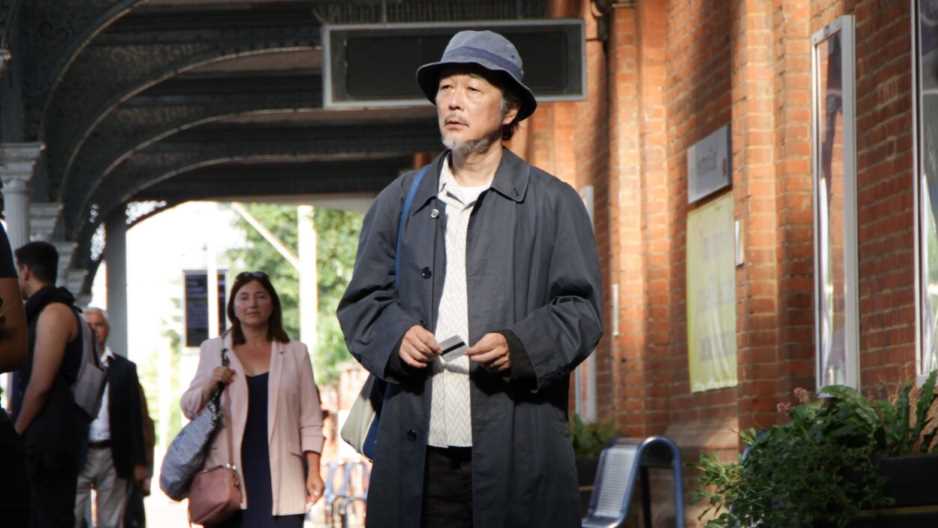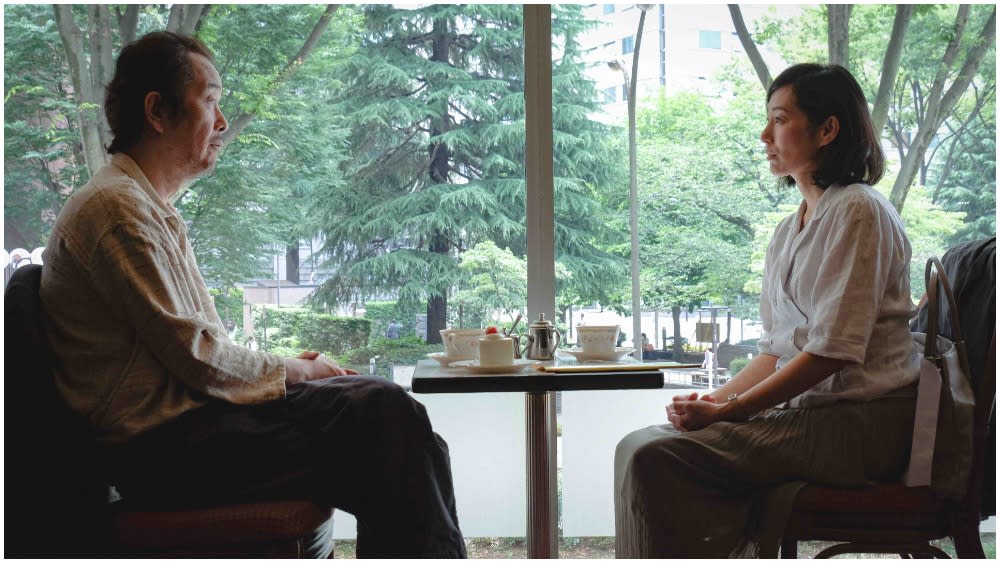Cottontail
12AGrief is one of those complicated emotions that we all have to face in our lives at some point, and although universal, can be handled very differently from person to person, and even country to country.
This sees the feature debut for writer and director Patrick Dickinson, shooting a mostly Japanese cast, as it focuses on a mother’s last wish to her family.

This doesn't look like the Hogwart's Express?
Having had his wife Akiko (Tae Kimura) recently die, Kenzaburo (Lily Franky) is trying to come to terms with his her death.
When he and his son Toshi (Ryo Nishikido) attend temple, the priest hands them a letter that his wife had asked to pass on to them with her passing.
It is a request that takes them by surprise – when she was young, she visited her father who was working in England, where she found herself at Lake Windermere, and she now asks that she returns there to have her ashes scattered on it.
So they both soon find themselves in the UK, along with Toshi’s wife (Rin Takanashi) and young daughter Emi (Hannii Hashimoto), where the occasion creates further tension between them as they plan their journey to Akiko’s final resting place.

And i also collect bus tickets...
Although Dickinson has carved out a career mostly directing in TV, this first foray into fictional features is an ambition one. Not only has he to direct the majority of the film with Japanese actors in their native tongue, a large portion of it is also shot in Tokyo.
But as mentioned earlier, grief is universal, and Dickinson taps into the struggle of a grieving husband and father with aplomb.
Much of is this is down to Franky’s portrayal, which captures that of a man emotionally lost after the fact, so much so that it affects his relationship with his son. His one focus however is to see out his wife’s last wish, but it’s to the detriment of his bond with his son.
It also possibly taps into the seemingly reserved nature of Japanese people as a whole, which reflects the same in the British, so in that sense bringing the two worlds together as it does has a certain synergy.
As the film progresses, Dickinson reveals more of the wife’s health issues in flashback, which adds to the emotional baggage that Kenzaburo is already feeling the weight of.
There are no outbursts of hurt or pain, but you know it’s there, simmering beneath the surface with a visible ache, that can be seen in both Kenzaburo’s eyes and body language.
It’s an examination of the grieving process that is subtly reserved and observed, and yet still manages to pull on the heartstrings as we witness a man unfurling before us, that makes for a touching, bittersweet and heartfelt debut.
